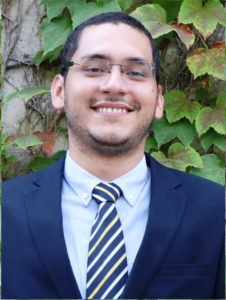The University of Toronto Operations Research Group (UTORG) is hosting a lunch talk by Professor Amir Ahmadi Javid. The talk is entitled “Entropic Value-at-Risk and Its Applications”. Lunch and coffee will be provided. Hope to see you there!
|
Who: Professor Amir Ahmadi Javid, Amirkabir University of Technology, Iran
When: Wednesday, August 22nd @ 12:00pm – 1:00pm Where: MB101 |
 |
| Bio-sketch: Amir Ahmadi Javid is an Associate Professor in the Department of Industrial Engineering at the Amirkabir University of Technology, Iran. His research areas include Risk Management and Financial Engineering, Location Analysis and Facility Planning, Quantitative Methods in Management, Sustainable Development and Corporate Social Responsibility, Supply Chain Management, and Service System Design and Management. He uses mathematical tools such as Stochastic Modeling and Optimization, Large-scale Optimization, Probability and Statistics, and Game Theory in his research. Personal Website: http://www.aut.ac.ir/official/main.asp?uid=ahmadi_javid Abstract: The entropic value-at-risk (EVaR) is a new coherent risk measure, which is an upper bound for both the value-at-risk (VaR) and conditional value-at-risk (CVaR). There are many applications of EVaR, including in healthcare, finance, and portfolio optimization. In this talk we are going to introduce the concept of EVaR and its applications. |
|


